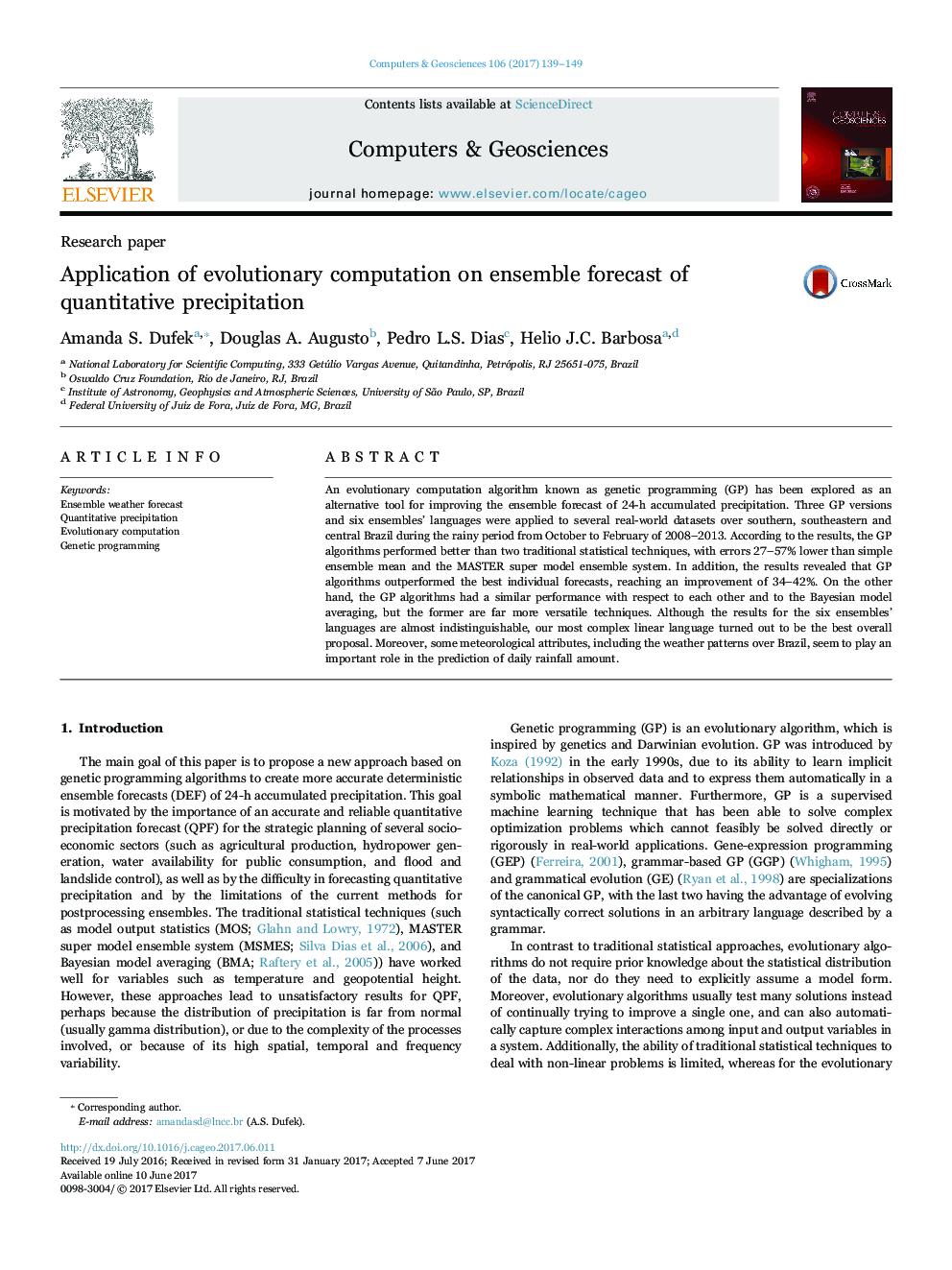| Article ID | Journal | Published Year | Pages | File Type |
|---|---|---|---|---|
| 4965318 | Computers & Geosciences | 2017 | 11 Pages |
Abstract
An evolutionary computation algorithm known as genetic programming (GP) has been explored as an alternative tool for improving the ensemble forecast of 24-h accumulated precipitation. Three GP versions and six ensembles' languages were applied to several real-world datasets over southern, southeastern and central Brazil during the rainy period from October to February of 2008-2013. According to the results, the GP algorithms performed better than two traditional statistical techniques, with errors 27-57% lower than simple ensemble mean and the MASTER super model ensemble system. In addition, the results revealed that GP algorithms outperformed the best individual forecasts, reaching an improvement of 34-42%. On the other hand, the GP algorithms had a similar performance with respect to each other and to the Bayesian model averaging, but the former are far more versatile techniques. Although the results for the six ensembles' languages are almost indistinguishable, our most complex linear language turned out to be the best overall proposal. Moreover, some meteorological attributes, including the weather patterns over Brazil, seem to play an important role in the prediction of daily rainfall amount.
Related Topics
Physical Sciences and Engineering
Computer Science
Computer Science Applications
Authors
Amanda S. Dufek, Douglas A. Augusto, Pedro L.S. Dias, Helio J.C. Barbosa,
